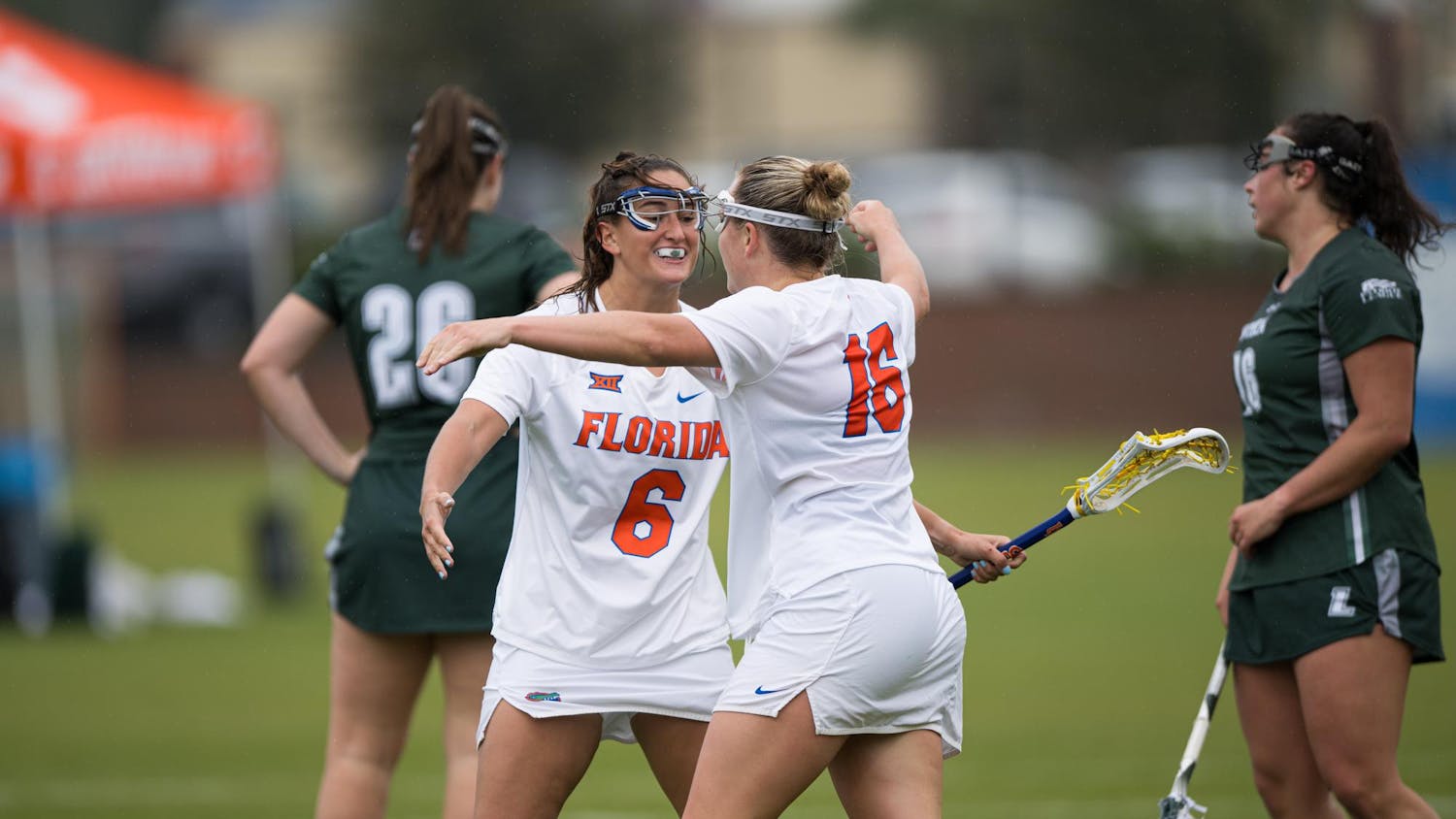UF students may soon be able to vote on whether to establish a remote, online voting method for Student Government elections as two senators prepare to resubmit the bill.
The Online Voting Constitutional Amendment, authored by Sen. Oscar Santiago Perez (Change-District D) and Sen. Jonathan C. Stephens (Change-District D), would provide all UF students with a secure, online and remote voting option for SG elections. If passed in the Senate, the amendment would be on the Spring election ballot for students to vote on.
The bill was supposed to be voted on during the Nov. 29 Senate meeting, but a motion to recommit the legislation and the closure of the Reitz Union postponed the vote.
“We really want to ensure the student body is able to have their voices heard on this measure,” Santiago Perez said. “That is the quintessential point of this fight.”
Online voting has been debated by UF Student Government as far back as 2005. Each election cycle, Santiago Perez said, he receives more questions from friends and voters about why remote, online voting is still unavailable.
Having watched various remote voting bills fail in the Judiciary Committee and Supreme Court over the last year and a half, Santiago Perez proposed creating a constitutional amendment after an online voting act submitted by Stephens failed this past summer.
Santiago Perez blames UF’s low turnout at SG elections — between 10-20% since Spring 2015 — on the barriers imposed by not providing students with an online, remote voting option.
“It would provide many students an opportunity to finally be able to vote within those two designated election days and avoid possible conflicts, which in turn should increase voter turnout,” he said.
Although absentee ballots offer an alternative to in-person voting, multiple issues emerge with voting by mail, such as the deadline for students to request their ballot.
Delays may also result in students receiving their ballots too close to an election, prompting the possibility their vote is not counted. Mail delays mainly affect students living off-campus or studying abroad, Santiago Perez said.
“The deadline to request an absentee ballot is two weeks before the election,” he said. “Some students might not even know who they are voting for. They might not even be aware that there is a Student Government election.”
Schools across the state have already implemented online voting in student government elections, such as Florida State University. Additionally, UF is the only university within the SEC that doesn’t provide students with a remote, online voting option for student government elections, Santiago Perez said.
“I find it absolutely ridiculous that a top-five university like the University of Florida cannot have online voting,” he said.
Four members of the Gator Caucus — including Student Body President Lauren Lemasters and Senate President Olivia Green — declined to comment on the bill.
Faith Corbett (Change-District C) views remote, online voting as the bare minimum to have an accessible student government, she said.
“These students are paying tuition money, but lack the direct opportunity to vote in elections unless they request the ballot,” she said.
Similar to Santiago Perez, Corbett has issues with the reliability and timeliness of voting by mail. She also emphasized the reliance younger generations have on technology and said that forcing students to vote in person or by mail can make voting seem like a chore instead of an opportunity to participate in student government.
“When I would canvas people during campaigns I would say go vote in Reitz it's right here,” she said. “They would go ‘yeah, right here, but how long is the line?’”
Providing a remote, online voting option may also allow the student government to allocate funds to other important resources for students. The money paid to poll workers working in-person voting locations may be able to be reallocated to support other areas of students' lives, Corbett said.
Corbett and Santiago Perez picture ONE.UF as the hub for online voting. They don’t have any other definitive details, as students must ratify the constitutional amendment before the Change caucus can begin further planning.
During the Nov. 29 Senate meeting, several members of the Gator caucus argued that online remote voting could raise cybersecurity concerns, citing a study discussing cybersecurity threats to voting systems supported by paper trails, Corbett said.
However, Corbett noted that UF Student Government uses online, encrypted ballots.
Corbett is also confused about why opponents of the amendment trust UF’s online platforms with their sensitive personal information but not voting choices.
“If we are to trust ONE.UF with our social security numbers, we should also be able to trust them with our vote,” Corbett said.
For voter impersonation concerns, Santiago Perez said students must identify themselves with Duo Mobile before signing into ONE.UF, and in-person voting would still be available to those with remaining integrity concerns.
Griffin Heckler, a 21-year-old first-year biomedical neuroscience graduate student, said she has always found it easy and accessible to vote in person during student government elections.
Although Heckler feels most secure voting in person, she thinks UF could improve voting accessibility for students who lack access to campus and are not able-bodied.
Heckler said she has also observed hostile behavior, such as people campaigning in the lines at polling stations, that could discourage students from wanting to vote in person.
Regarding online voting, Heckler said she believes a voting option administered through ONE.UF would increase voter turnout — however, she’d want to learn how SG would address integrity concerns, such as voter fraud and other cybersecurity threats.
“People are logging into ONE.UF or Canvas every single day,” she said. “So if [voting] is just a couple clicks away, I bet a bunch more people would be voting.”
Santiago Perez resubmitted the constitutional amendment Sunday and predicted debate on the legislation at the Senate’s first Spring semester meeting Tuesday.
Contact Amanda at afriedman@alligator.org. Follow her on Twitter @afriedmanuf.
Amanda Friedman is a senior journalism major and the Enterprise Editor at The Alligator. She previously wrote for the Avenue, Metro and University desks. When she isn't reporting, she loves watching coming-of-age films and listening to Ariana Grande.






